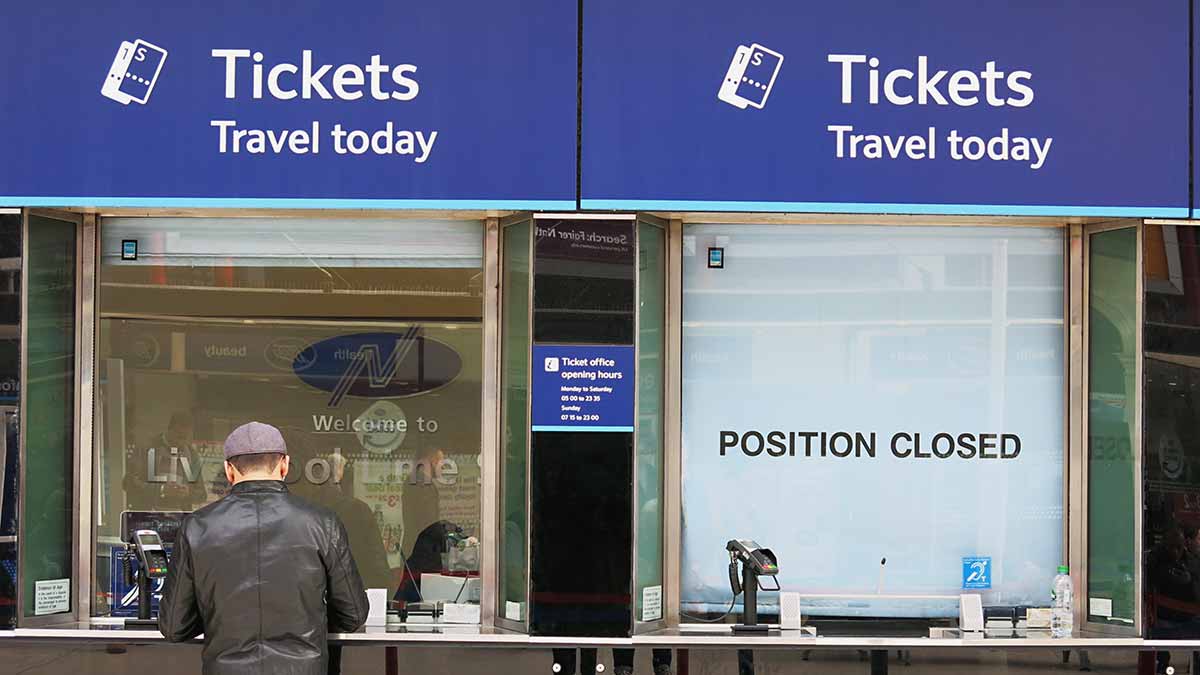Train operators announce ticket office closures

Rail operators have announced plans for mass closures of ticket offices, which would change the roles of station staff.
The Rail Delivery Group, which represents train operating companies, has published a public consultation on the gradual closure of hundreds of ticket offices today (5 July).
Ticket kiosks are expected to remain in large stations, but elsewhere station staff will be on concourses to sell tickets, offer travel advice and help people with accessibility needs.
Those currently based in ticket offices will move into “customer help” roles already in place in many parts of the railway.
The RDG said more people are buying tickets online or using ticket machines. Only 12% of tickets are currently sold in ticket offices, which are present in around three in five stations.
“Bringing staff out from offices would allow the railway to respond to that generational shift in customer behavior, in common with many other industries and organisations that have long since done so such as Transport for London, most airlines and many banks and supermarkets,” the RDG said.
“Alongside the public consultation on ticket offices, a range of options will be created for staff affected, including moving to a new skilled role and comprehensive re-training and re-skilling. Train companies will continue to engage constructively with unions at a local level to manage the transition in a way that works best for staff.”
Chief executive Jacqueline Starr said: “Our commitment is that we will always treat our staff, who are hugely valued and integral to the experience our customers have on the railway, fairly, with support and extra training to move into new more engaging roles.”
The public consultation[1] will run until 26 July.
However, the RMT union – the UK’s largest rail union – has suggested members may strike if the plans go ahead.
General secretary Mick Lynch told the BBC that the union would not “meekly sit by and allow thousands of jobs to be sacrificed or see disabled and vulnerable passengers left unable to use the railways as a result”.
Railfuture, a campaign group that represents rail users, said the proposed closures would be bad for passengers, taxpayers and rail staff.
Director Neil Middleton said: “As taxpayers, we are naturally keen on value for money, and rail staff with the single role of selling an occasional rail ticket isn’t the best use of their time or our money. But, its an emotive subject, and we can see why.
“There needs to be a proper commitment to the new world which guarantees staff at stations for at least as long as at present, for the continued ability to buy tickets from rail staff as is currently available. In one sense, the ‘ticket office’ is a sideshow – the important issue is the people inside them – making the best possible use of their skills and energy to help passengers, with the training and resources they will need to do this.”
HR roles in the travel and transport on Personnel Today
Browse more HR roles in the travel and transport sector[2]
References
- ^ public consultation (www.londontravelwatch.org.uk)
- ^ Browse more HR roles in the travel and transport sector (jobs.personneltoday.com)